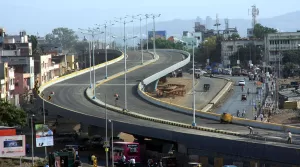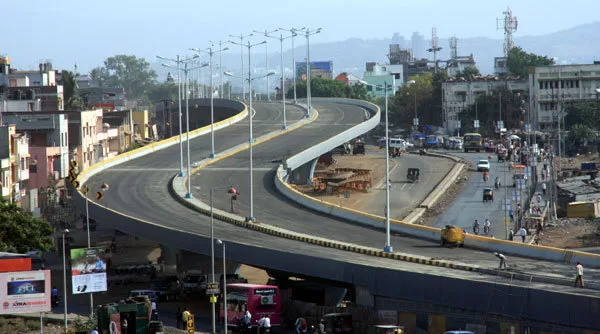– by Akash Pharande, Managing Director – Pharande Spaces
Pune has been witnessing increasing inward migration over the years, thanks largely to the good job prospects, the city’s many high-grade educational institutions, and overall better livability than many other metros. Recent estimates peg Pune’s average annual population growth at 3% to 4%, and as of September 2021, the city’s population was about 3.13 million (31.3 lakhs).
Pune regularly attracts professionals and students from different parts of the country and even from abroad. One of the city’s major USPs is its thriving IT and IT-enabled services sector, as well as a massive manufacturing base, which contribute significantly to the influx of people seeking better career prospects.
The Homebuyer’s Quandary
The immediate difficult decision that new arrivals face is the one about housing. Depending on the sector they have found employment in and at what level, migrants may initially choose to rent if they are unsure about their long-term plans. Renting provides flexibility and requires a comparatively smaller financial commitment in the short term.

Once established in their work, they will invariably consider the next logical step – buying a home in Pune, which offers stability and long-term investment benefits, including capital appreciation. The next question is where buying a home makes more sense.
This is an important decision. It will impact the buyer at various levels beyond the immediate cost of buying a home, including the quality of life they will enjoy, the overall cost of living in the chosen area, and how well their investment will appreciate in value.
A Case for PCMC
In the broadest sense, Pune is divided into two major municipalities – the Pune Municipal Corporation (PMC) and the Pimpri-Chinchwad Municipal Corporation (PCMC). Native Puneris will often choose to live in PMC areas for natural reasons. The Pune Municipal Corporation was established in 1950 when it was formed as a local governing body for Pune. PMC governs the core areas of Pune city.
On the other hand, PCMC in the northwest of Pune city was established relatively later. It came into existence in 1982 when the industrial townships of Pimpri and Chinchwad were merged with nearby areas to form a separate municipal corporation. PMC primarily governs the older areas of Pune city, while PCMC governs the younger industrial and residential hub of PCMC.
This is important background for newly aspiring homebuyers to consider while choosing between the two regions. One obvious reason is that most people prefer to live close to their places of work. But it is also a question of whether a ‘younger’ area offers more benefits than an ‘older’ area. Without a doubt, the answer, in this case, is yes. Let’s examine why.

Superior Lifestyle Quotient
Pimpri-Chinchwad Municipal Corporation offers several advantages over its older sibling, and for good reasons:
Cost of Living: PCMC generally offers a lower living cost than PMC. Not only because the housing prices and rentals are more affordable but also because PCMC has invested much more in infrastructure. Yes, there is a connection, which is my next point.
Transit Infrastructure: PCMC’s superior infrastructure investments have resulted in well-planned roads and better connectivity. Faster commutes to and from work result in significant household savings and fewer medical expenses for health problems caused by long commutes in polluted air. Which also brings me to my next point.
Less Traffic Congestion: PCMC witnesses far less traffic congestion than Pune’s core areas. The well-planned road networks, including the Pune-Mumbai Expressway and Pune-Nashik Highway, provide a smoother commuting experience. The Pune Metro in PCMC further enhances the transportation infrastructure and reduces road congestion.
Master-planned Development: In PCMC, all development is based on a master plan, providing an important related advantage. The well-thought-out manner in which residential complexes, commercial cent res, and entertainment hubs complement each other in PCMC results in a comfortable and convenient lifestyle for its citizens.
PCMC’s dedicated industrial zones and residential areas separate industrial activities from residential pockets, resulting in a more organized and livable environment.
PCMC has a reliable water supply and electricity distribution system. Constant investments are being made into uninterrupted water supply and reliable power infrastructure to enhance residents’ overall quality of life. The region also has ample green spaces, parks, and recreational facilities for residents.
Areas like Pimpri Chinchwad Science Park, Auto Cluster Exhibition Center, and various sports complexes provide outdoor and leisure opportunities. In fact, PCMC is also textbook case of commitment to environmental conservation and sustainability because of the focus on creating a sustainable and inclusive environment by promoting green spaces, cycling tracks, and pedestrian-friendly zones.

Education: PCMC is home to renowned educational institutions across various streams, including engineering, management, and medicine. These institutions ensure access to quality education and provide a steady funnel of high-grade workforce to PCMC’s various employment hubs.
Employment Opportunities: PCMC is a major industrial and employment hub, hosting numerous manufacturing units, IT parks, and business cent res. These industries provide countless job opportunities at all levels and contribute to the region’s thriving economy.
Let me elaborate on this point since it deserves to be highlighted.
Employment Mecca
PCMC is home to several prominent Infotech parks and IT hubs, making it Pune’s most definitive IT and business destination. The region’s IT/ITeS repertoire includes the Rajiv Gandhi IT Park in Hinjewadi, which houses numerous IT and software companies, including multinational corporations, startups, and service providers.
The International Tech Park, also located in Hinjewadi, accommodates a wide range of IT and software companies who choose it for its state-of-the-art infrastructure, office spaces, and facilities.
The MIDC IT Park in Bhosari is an industrial area that includes IT and software companies alongside other industries. Its massive ecosystem houses multiple sectors, including IT, manufacturing, and engineering.
On the industrial manufacturing side, the MIDC (Maharashtra Industrial Development Corporation) belt in PCMC comprises multiple industrial zones and areas, including the Pimpri-Chinchwad Industrial Area, Chinchwad Gaon Industrial Area, Bhosari Industrial Area, Chakan Industrial Area, and Talegaon Industrial Area.
These areas are spread across different parts of PCMC and accommodate various industries, including manufacturing, engineering, automotive, pharmaceuticals, IT, and more. The job opportunities are limitless.
Taking a Smart Homebuying Call
All of the above is just the tip of the iceberg for homebuyers. Based on its track record for good civic governance and superior infrastructure, PCMC has been selected as a Smart City under the Smart Cities Mission.
This provides a clear road map of PCMC’s future potential since the Smart City tag entails the implementation of various smart and sustainable initiatives, including using technology for efficient governance, improved infrastructure, and enhanced quality of life for residents.
Undoubtedly, individual preferences on where to buy a home vary, and many people still prefer living in the core areas of Pune for various reasons. However, new arrivals to the city have a clear advantage – they have no preconceptions or cultural biases. Thus, they are well-placed to make informed, logical choices on where they should buy their homes.
About the Author:

Akash Pharande is Managing Director – Pharande Spaces, a leading real estate construction and development firm famous for its township properties in West Pune. Pharande Promoters & Builders, the flagship company of Pharande Spaces and an ISO 9001-2000 certified company, is a pioneer of townships in West Pune.
“This content is provided by the company and the website will not be responsible in any way for the content of this article.”

